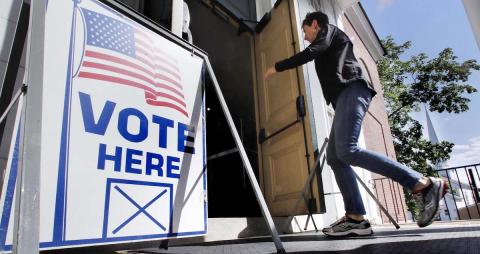Update 8/30/20: Maine Secretary of State Matt Dunlap has appealed the superior court's ruling on an emergency basis. The clock is ticking as in 5 weeks, absentee ballots will be sent out in 5 weeks. Stay tuned for more updates.
Maine was set to be the first state in the US to use ranked choice voting in presidential elections. That has all changed after a recent ruling by a superior court judge.
Superior Court Judge Thomas McKeon reversed the determination by Secretary of State Matthew Dunlap that the Maine GOP had not gathered enough valid signatures to challenge ranked choice voting (RCV) for presidential elections. Now, RCV is set to go before Maine voters for a third time in 4 years.
It is important to note that this also means that despite being the law of the land, ranked choice voting will not be used in the 2020 presidential election and will be put on hold until 2024.
“Mainers have already made their decision clear, year after year: they want ranked choice voting in their elections. Putting it on the ballot a third time will not change their minds,” said Anna Kellar, Executive Director for The League of Women Voters.
The decision came down to a difference in state constitutional interpretation. The Maine constitution requires petition circulators to be residents of the state and registered to vote in the municipality in which they are collecting signatures. Since two petition circulators were not registered to vote in their municipalities, Dunlap invalidated the signatures gathered by them.
However, Judge McKeon ruled that the petition circulators didn’t have to be registered to vote at the time they collected the signatures. (They registered in those towns before turning in the petitions.) The decision restored barely enough signatures for the RCV challenge to appear on the November ballot.
The ruling can be appealed by Secretary Dunlap or the intervenor, the Committee for Ranked Choice Voting, on an emergency basis. However, Dunlap has told the press that he is not sure what steps he is going to take next. The decision has deeper implications on how his office validates signatures going forward.
FairVote, the nation's leading advocate for ranked choice voting, added a national perspective to the court's decision:
“We all want the same things from our elections: candidates want to run knowing their race won’t be ‘spoiled’ or held hostage by vote-splitting, and voters want to make choices based on their own convictions, not careful calculations about electability,” said Rob Richie, the group's president and CEO. “As cities and states across the country adopt ranked choice voting, we’re confident Mainers will continue to lead with this sensible electoral reform.”
It is important to note that ranked choice voting will still be used in both US congressional elections and the election for US Senate. Attempts to challenge ranked choice voting in these elections have failed.
